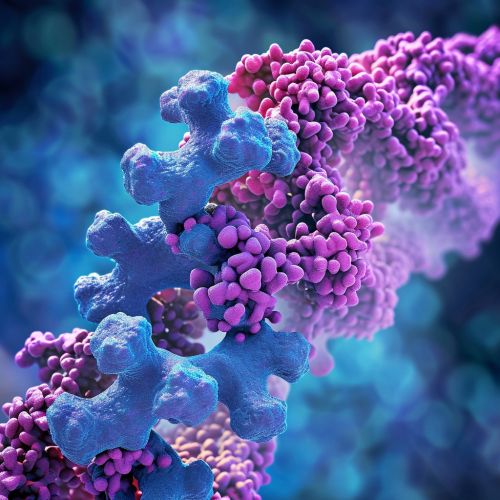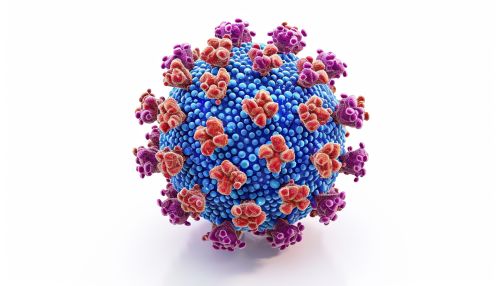Class II cytokine receptor
Overview
The Class II cytokine receptor (C2CR) is a type of cytokine receptor that is primarily involved in the immune response of an organism. These receptors are characterized by their specific binding to type II cytokines, a category of signaling proteins that are crucial for the immune system's functioning. The C2CR family includes the receptors for interferons (IFNs) and interleukin-10 (IL-10) related cytokines.
Structure
The Class II cytokine receptors are typically composed of two or more different protein subunits, which can either be identical (homodimeric) or different (heterodimeric). Each subunit is made up of an extracellular domain, a transmembrane domain, and an intracellular domain. The extracellular domain is responsible for binding to the cytokine, while the intracellular domain is involved in signal transduction.


Function
The primary function of Class II cytokine receptors is to bind to their respective cytokines and transmit the signal into the cell. This is achieved through the intracellular domain of the receptor, which interacts with various intracellular signaling molecules. The signal transduction process typically involves the activation of the JAK-STAT signaling pathway, a critical pathway in immune response regulation.
Types of Class II Cytokine Receptors
There are several types of Class II cytokine receptors, each with its specific cytokine ligands. These include:
- Interferon (IFN) receptors: These receptors bind to type I and type II interferons. They play a crucial role in antiviral immunity and immune system modulation.
- Interleukin-10 (IL-10) receptors: These receptors bind to IL-10 and related cytokines. They are involved in the regulation of immune response and inflammation.
- Interleukin-20 (IL-20) receptors: These receptors bind to IL-20 and related cytokines. They are involved in skin inflammation and repair processes.
- Interleukin-22 (IL-22) receptors: These receptors bind to IL-22 and related cytokines. They are involved in tissue repair and host defense mechanisms.
Clinical Significance
Class II cytokine receptors have significant clinical relevance due to their role in immune response regulation. Abnormalities in these receptors can lead to various immune disorders, including autoimmune diseases, inflammatory diseases, and certain types of cancer. For instance, mutations in the genes encoding for IFN receptors can result in impaired immune response to viral infections. Similarly, abnormalities in IL-10 receptors can lead to chronic inflammatory diseases due to unregulated immune response.
Research and Future Directions
Research on Class II cytokine receptors is ongoing, with the aim of understanding their structure and function better and exploring their potential as therapeutic targets. Future directions in this field may include the development of drugs that can modulate the activity of these receptors, potentially providing new treatment options for various immune disorders.
